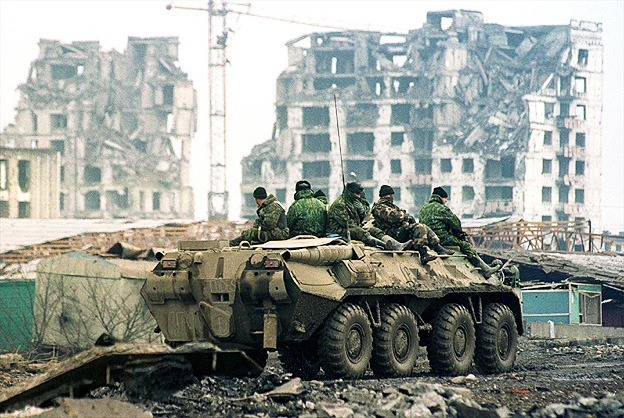A number of attempts have been made to discern and describe a ‘Putin doctrine’ during the years of his influence on Russian and world affairs, including some recently as a consequence of his reaction to the Syria chemical weapons crisis. Most suggest a doctrine of ‘reasserting Russia’s power‘ or ‘building Russia up by tearing the US down,’ an aspiration and strategy which, while arguably correct, seem to miss Putin’s underlying and unmistakeable political philosophy.
number of attempts have been made to discern and describe a ‘Putin doctrine’ during the years of his influence on Russian and world affairs, including some recently as a consequence of his reaction to the Syria chemical weapons crisis. Most suggest a doctrine of ‘reasserting Russia’s power‘ or ‘building Russia up by tearing the US down,’ an aspiration and strategy which, while arguably correct, seem to miss Putin’s underlying and unmistakeable political philosophy.
Here we propose an argument for a ‘Putin doctrine’ as follows:
No nation, group of nations or international organisation has the right to interfere or intervene without consent in the internal affairs of any sovereign state under any circumstances short of the proven violation of existing conventions governing the use of weapons of mass destruction.
In other words a sovereign state has the right to deal with dissent, insurgency and secession by whatever means it otherwise sees fit. That this might include conventional warfare against civilians, mass arrests and detentions, summary executions, massacres, genocide and authoritarian terrorism is left to the discretion of the state’s leadership. And if the state is an ally, Russia will actively disable the Security Council from taking action against it on behalf of any majority of the larger international community whom might find such activity objectionable. As Russian ‘hard power’ inevitably increases we need to think this through carefully.
 ell, now we’ve seen it all. Vladimir Putin has an op-ed in the 11 September edition of the New York Times imploring Americans to undermine their own security by doubting the motives, credibility and policies of the US government:
ell, now we’ve seen it all. Vladimir Putin has an op-ed in the 11 September edition of the New York Times imploring Americans to undermine their own security by doubting the motives, credibility and policies of the US government: nteresting developments overnight have again changed the course of the Syrian chemical weapons crisis:
nteresting developments overnight have again changed the course of the Syrian chemical weapons crisis: bout an hour after the vote which defeats the proposed Authorisation for Use of Military Force in response to the chemical weapons attack in Syria we will probably begin to realise that the world as we know it has been irrevocably changed; and probably not for the better.
bout an hour after the vote which defeats the proposed Authorisation for Use of Military Force in response to the chemical weapons attack in Syria we will probably begin to realise that the world as we know it has been irrevocably changed; and probably not for the better.
 One of the most debilitating and divisive aspects of the discourse surrounding the Israeli-Palestinian conflict is the way constituencies engage the question of how anti-Zionism relates to anti-Semitism. Very often, the division on this question is dichotomous and creates a binary of extreme positions that cannot engage with one another.
One of the most debilitating and divisive aspects of the discourse surrounding the Israeli-Palestinian conflict is the way constituencies engage the question of how anti-Zionism relates to anti-Semitism. Very often, the division on this question is dichotomous and creates a binary of extreme positions that cannot engage with one another. 
